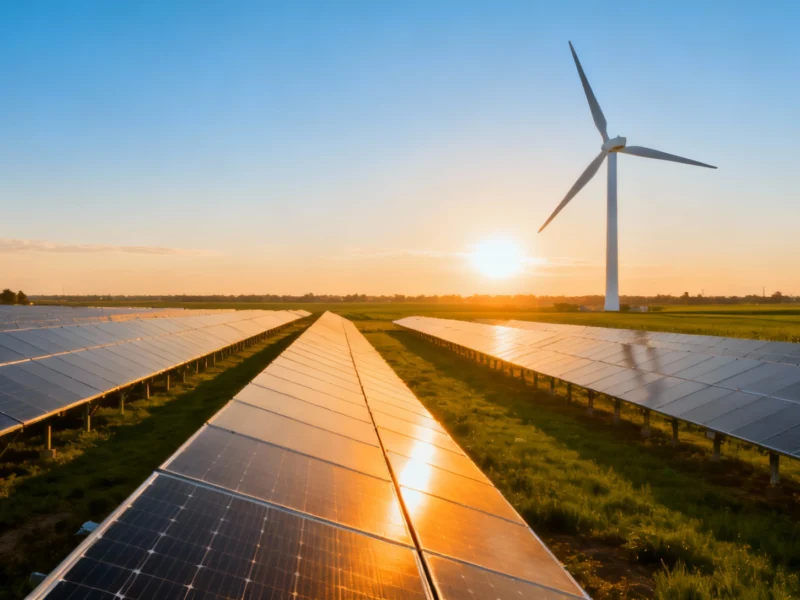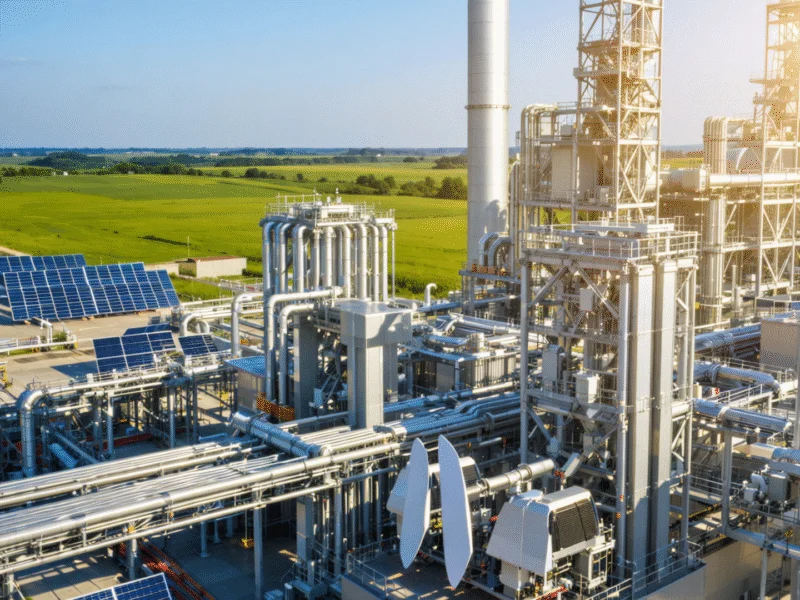Record Renewable Growth Still Insufficient for Climate Goals
The global transition to renewable energy achieved unprecedented momentum in 2024, with a record 582 gigawatts of new capacity added worldwide. This represents a 15.1% annual growth rate, according to a comprehensive report released by leading international energy organizations. Despite this remarkable progress, the current growth trajectory remains insufficient to meet the ambitious target of tripling global renewable capacity by 2030, a key commitment made by over 100 countries during the COP28 climate summit.
The report, jointly produced by the International Renewable Energy Agency (IRENA), the Global Renewables Alliance, and the COP30 Brazilian Presidency, serves as a crucial progress assessment ahead of upcoming United Nations climate negotiations. With total installed renewable capacity reaching 4,443 GW by the end of 2024, the world remains significantly short of the 11,174 GW required to fulfill the tripling commitment made under the United Nations framework.
The Tripling Target: Current Status and Required Acceleration
To achieve the 2030 target, the global community must accelerate annual renewable capacity growth to 16.6% between 2025 and 2030. This represents a substantial increase from the current record growth rate and requires immediate, coordinated action across all nations. The gap between current installations and the target amounts to nearly 6,731 GW, highlighting the scale of the challenge facing global energy transition efforts.
Francesco La Camera, IRENA’s Director-General, emphasized that while the challenge is significant, the target remains achievable. “We may be close to still more than 700 GW, possibly 750 GW of capacity additions in 2025, and this means we are closing the gap,” he stated in an interview with Reuters. This optimistic projection suggests that with concentrated effort, the world could begin narrowing the deficit as early as next year.
Global Policy Landscape and Investment Challenges
The report identifies several critical areas requiring government intervention to accelerate renewable deployment. Policies that better support renewable development, workforce reskilling programs, and improvements to supply chains and power infrastructure represent key priorities. These measures are particularly crucial given recent policy shifts in major economies, including the United States, where changes to tax credits for solar and wind projects could potentially hamper investment momentum.
Despite these challenges, La Camera remains confident in the unstoppable nature of the energy transition. “This transition is not stoppable,” he asserted. “The renewables market has made this choice, it is the cheapest way to produce electricity.” This sentiment echoes broader market trends where renewable energy continues to demonstrate increasing cost competitiveness against fossil fuels.
Regional Developments and Global Context
The upcoming COP30 climate talks in Brazil will provide a crucial platform for assessing global progress and reinforcing commitments. This follows the landmark agreement reached at COP28 in Dubai, where nations first committed to the tripling target. The Brazilian presidency of COP30 positions the country as a key facilitator in driving international cooperation toward these ambitious goals.
Recent data from energy think tank Ember reinforces the growing dominance of renewables in global electricity generation. During the first half of 2025, renewable energy sources generated more electricity than coal for the first time in history, marking a significant milestone in the global energy transition. This achievement demonstrates the accelerating pace of change in global energy systems, even as capacity targets remain challenging.
Intersection with Technology and Infrastructure Development
The renewable energy transition intersects significantly with broader technological and infrastructure trends. As noted in recent analyses, the AI investment boom predicted by Morgan Stanley could have substantial implications for energy demand and infrastructure requirements. Similarly, the expansion of Elon Musk’s Starlink satellite internet represents both increased energy demand and potential opportunities for renewable integration in remote locations.
Infrastructure development remains crucial for supporting renewable growth, as evidenced by projects like Vantage’s planned data center expansion in San Antonio. Such developments highlight the growing interconnection between digital infrastructure and energy systems. Furthermore, insights from Morgan Stanley’s analysis of AI capital expenditure suggest significant potential for coordinated investment in renewable energy to power emerging technologies.
Urgent Need for Accelerated Action
The timing of this assessment is particularly crucial given parallel warnings about climate thresholds. A separate report titled “Global Tipping Points,” involving 160 researchers worldwide, cautioned that global warming is crossing dangerous thresholds sooner than expected. This underscores the urgency of accelerating renewable deployment beyond current rates to mitigate climate risks effectively.
The convergence of these findings creates a compelling case for enhanced global cooperation and policy action. While the record renewable growth in 2024 demonstrates significant progress, the gap to target emphasizes that current efforts remain insufficient. The coming years will determine whether the global community can mobilize the necessary resources, policies, and international cooperation to bridge this gap and secure a sustainable energy future.
As nations prepare for the upcoming climate negotiations, the IRENA report serves as both a celebration of progress and a sobering reminder of the work ahead. The successful tripling of renewable capacity by 2030 will require sustained commitment, innovative policies, and unprecedented levels of international collaboration across all sectors of the global economy.




3 thoughts on “Global Renewable Energy Growth Hits Record But Falls Short of Climate Targets”